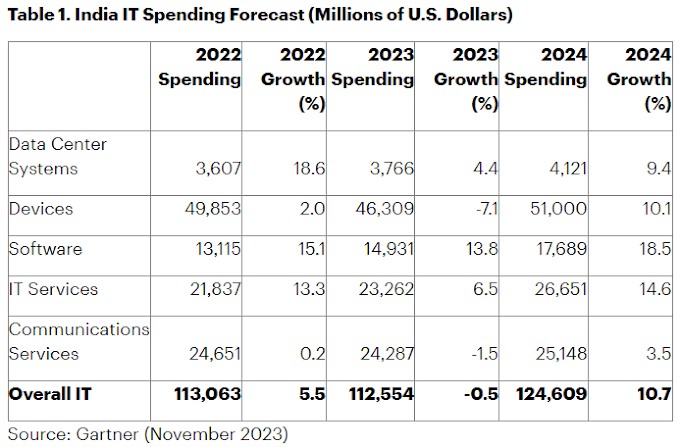In recent years, digital transformation and artificial intelligence (AI) have become two of the most powerful forces reshaping the landscape of industries worldwide. Businesses are increasingly integrating advanced technologies into their operations to enhance efficiency, improve decision-making, and create value. Digital transformation is the strategic overhaul of a company's processes and systems to leverage digital technologies. Meanwhile, AI, with its capabilities to simulate human intelligence, offers immense possibilities to automate tasks, gain insights from vast data, and predict future trends. Together, they form a synergy that can drive unparalleled growth and innovation.
Understanding Digital Transformation
Digital transformation is not just about adopting new technologies; it’s a holistic approach to integrating digital solutions across all areas of business. It involves the adoption of cloud computing, data analytics, Internet of Things (IoT), blockchain, and more, all aimed at improving operations and enhancing customer experiences. For organizations, digital transformation means rethinking how they operate, interact with customers, and deliver value in the digital age. Businesses that successfully undergo digital transformation are more agile, efficient, and better positioned to compete in an increasingly fast-paced environment.
The process of digital transformation often starts with digitalizing core business operations, such as moving from paper-based processes to digital workflows, automating routine tasks, and adopting modern communication tools to enhance collaboration. However, the real value of digital transformation lies not just in digitizing existing processes but in fundamentally rethinking business models and strategies. This is where AI comes into play, providing the ability to make data-driven decisions, automate complex tasks, and predict outcomes with a high degree of accuracy.
The Role of AI in Digital Transformation
AI has become a game-changer in digital transformation efforts across industries. It powers automation, drives intelligent decision-making, and helps businesses make sense of massive amounts of data. The combination of AI and digital transformation allows organizations to enhance customer experiences, streamline operations, and innovate faster than ever before.
AI's role in digital transformation can be divided into three key areas:
1. Automation: AI-driven automation allows businesses to improve efficiency by automating repetitive tasks that previously required manual intervention. This includes chatbots handling customer queries, AI-powered robots on production lines, and automated data entry in finance departments. Automating these processes frees up valuable human resources, allowing employees to focus on higher-level tasks that require creativity and critical thinking.
2. Data-Driven Decision Making: AI excels in analyzing large volumes of data and providing actionable insights. Through machine learning and predictive analytics, AI can identify trends, patterns, and anomalies that would be impossible for humans to detect manually. For instance, in retail, AI can analyze customer purchasing behavior to predict future trends and optimize inventory management. In healthcare, AI can analyze medical records to suggest personalized treatment plans based on a patient’s unique medical history.
3. Enhanced Customer Experience: Personalization has become a key differentiator in today’s market, and AI enables businesses to deliver personalized experiences at scale. By analyzing customer interactions and preferences, AI can recommend products, predict what customers are looking for, and even provide proactive customer service. For example, AI-powered recommendation engines like those used by Amazon and Netflix use algorithms to offer personalized product or content suggestions, enhancing customer satisfaction and engagement.
A Case Study: AI-Driven Digital Transformation in Financial Services
A prime example of the synergy between AI and digital transformation can be seen in the financial services industry, specifically with the digital transformation of JPMorgan Chase, one of the largest banks in the world. Like many traditional financial institutions, JPMorgan Chase faced challenges with manual processes, risk management, and customer service. In its quest to stay competitive and enhance its service offerings, the bank embarked on a digital transformation journey with AI at the center of its strategy.
Automation with AI
One of the major areas where JPMorgan Chase implemented AI was in contract analysis. The bank introduced a machine learning-based platform called COIN (Contract Intelligence). This AI tool automates the review of legal documents, which was previously a labor-intensive process involving thousands of man-hours. COIN can process hundreds of pages of contracts in seconds, accurately identifying important clauses and reducing the risk of human error.
AI in Fraud Detection
JPMorgan Chase also leveraged AI in its fraud detection systems. The financial industry is highly susceptible to fraud, and traditional methods of fraud detection were often slow and prone to false positives. With AI, the bank developed sophisticated algorithms capable of analyzing vast amounts of transactional data in real-time, identifying suspicious activities and flagging them for further investigation. This AI-driven approach significantly improved the bank’s ability to detect and prevent fraudulent activities, saving millions of dollars annually.
Personalized Customer Service
AI has also enhanced JPMorgan Chase's customer service capabilities. Through the use of virtual assistants and AI-powered chatbots, the bank can handle a large volume of customer inquiries efficiently and with a high degree of personalization. The AI systems analyze customer data to provide tailored responses and recommendations, improving the overall customer experience and freeing up human agents to handle more complex cases.
Overall, JPMorgan Chase’s digital transformation, underpinned by AI, has led to more efficient operations, better risk management, and enhanced customer engagement. The bank's adoption of AI tools has allowed it to stay ahead of the competition in an industry that is rapidly evolving due to technological advancements.
The Benefits of AI-Driven Digital Transformation
The integration of AI into digital transformation strategies offers several key benefits:
1. Increased Efficiency: AI-powered automation significantly reduces the time and resources needed for routine tasks, allowing businesses to operate more efficiently.
2. Better Decision-Making: AI's ability to analyze large datasets enables businesses to make more informed, data-driven decisions.
3. Improved Customer Experience: AI allows companies to provide personalized, real-time services that enhance customer satisfaction and loyalty.
4. Innovation and Growth: The combination of AI and digital transformation enables businesses to innovate more quickly, leading to the development of new products, services, and business models.
The Challenges of AI in Digital Transformation
While the potential of AI in digital transformation is vast, it is not without challenges. One of the main obstacles is the need for significant investment in both technology and talent. Implementing AI systems requires advanced infrastructure, as well as skilled professionals who can develop, manage, and maintain these systems.
Moreover, there are concerns about data privacy and security, as AI systems often rely on vast amounts of sensitive data to function. Businesses must ensure that they comply with regulatory requirements and protect customer data from breaches.
Finally, there is the question of workforce displacement. As AI automates more tasks, there are fears that jobs traditionally held by humans could be lost. However, many experts argue that while AI may eliminate certain roles, it will also create new opportunities in fields like AI development, data science, and robotics.
Conclusion
AI and digital transformation are two intertwined forces that, when combined, can unlock unprecedented opportunities for businesses across industries. By automating tasks, enhancing decision-making, and delivering personalized experiences, AI can accelerate the digital transformation process and enable businesses to thrive in an increasingly digital world. However, organizations must also navigate the challenges of AI integration, ensuring they invest in the right infrastructure, talent, and ethical practices to fully realize the benefits of this powerful technology.
References:
- Davenport, T. H., & Ronanki, R. (2018). Artificial Intelligence for the Real World. Harvard Business Review.
- Westerman, G., Bonnet, D., & McAfee, A. (2014). Leading Digital: Turning Technology into Business Transformation. Harvard Business Review Press.
- McKinsey & Company. (2020). The State of AI in 2020. McKinsey Global Institute.
- Soni, N., & Sharma, E. (2020). Impact of AI on Business and Society. Journal of Management Information and Decision Sciences.

.png)





